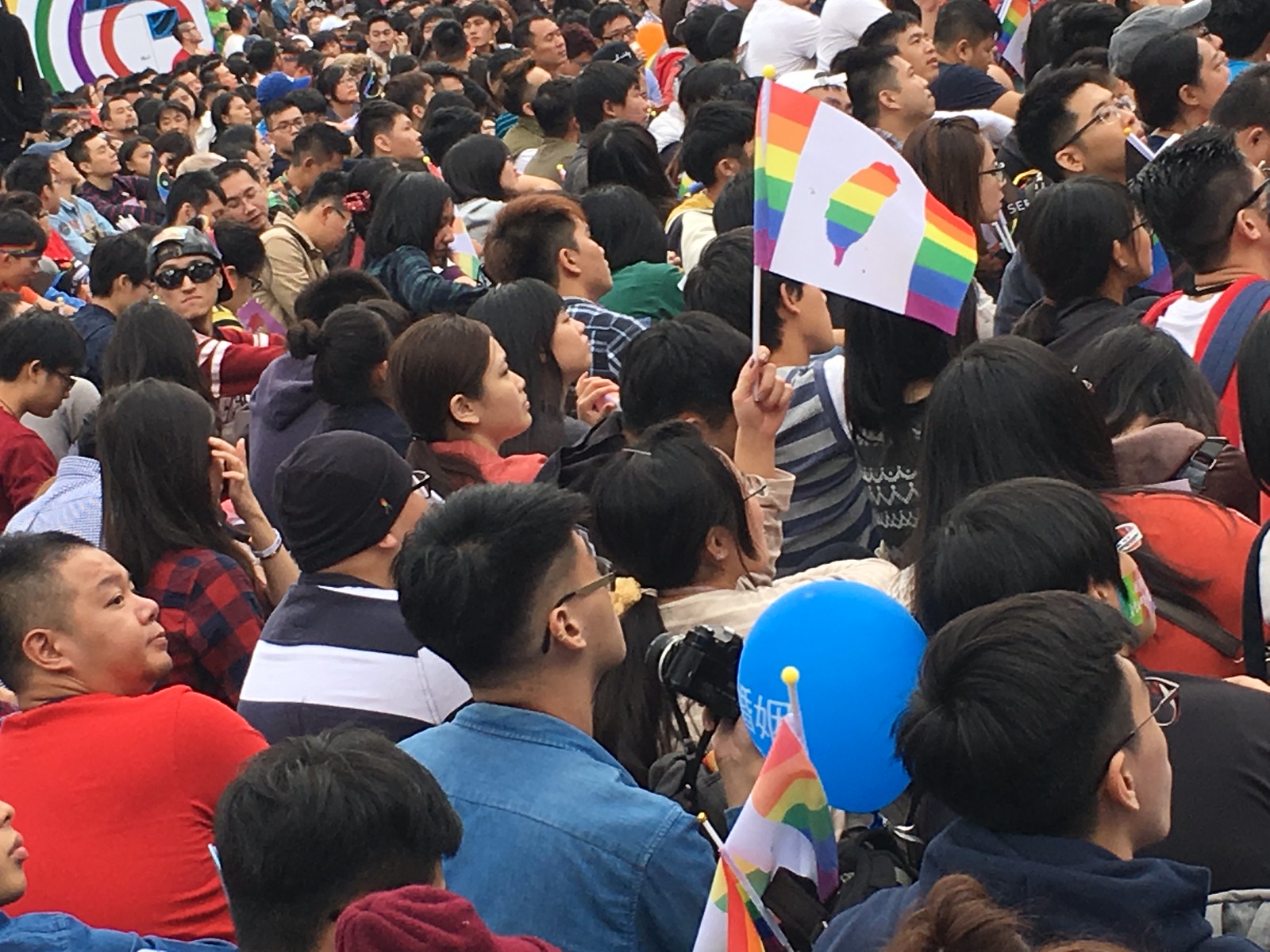
There are plenty of articles out there on the nuts and bolts of today's marriage equality rally: estimates are that 250,000 attended (and also that the "200,000" number quoted for the anti-equality rally was misleading: that was the total for every event across the country, not the demonstration downtown, which was more like 100,000 it seems). I personally feel, based on no scientific principles whatsoever, that it was more. I was at the protest against the military after Hong Zhongqiu's death - I remember estimates of 200,000 - this was more. I was at the Sunflowers, which was reported as 100,000 (but was well-known to be more like 400,000). This sure felt like more.
At that protest, we were able to walk up to the Jingfu Gate and more or less walk around - this time it was impossible to do that (we ended up seated near it only because we showed up on the early side). When I walked back to NTU Hospital to use the bathroom, I looked down Zhongshan Road away from the center of the rally, towards Zhongxiao - and I'm telling you, I could not see the end. It just kept going.
Edited to add: I've somewhat changed my mind on this after seeing the aerial photos. During the Sunflowers Xinyi Road was backed up to about a quarter of the way down the side of CKS and there were crowds in front of CKS as well. That was not the case this time - the center was more crowded but Xinyi and the area right in front of CKS were perhaps less so.
I'm not sure it matters, though, and don't take my word for it. If the anti-equality crowd was about 100,000 in Taipei, and we hit 250,000, we dwarfed them.
And yes, it matters.
They'll tell you that most attendees were young - this is true, though I did see some aunties and uncles and a few grandparental older folks around.
They'll tell you the numbers decisively outclassed the Bigot Rally last weekend.
They'll tell you that people from all major political parties spoke - the DPP, the NPP and Jason Hsu of the KMT (who, as KMT folks go, is not a bad dude. Perhaps delusional about his own party, but otherwise he's basically okay).
They will also tell you that Taiwan is poised to be the first country in Asia to legalize marriage equality, and that the final reading of the bill (there are three in question but the attendees today specifically support the one that would amend the language of the Civil Code rather than be appended to it, and certainly not a third bill proposing civil partnerships) is the day after Christmas.
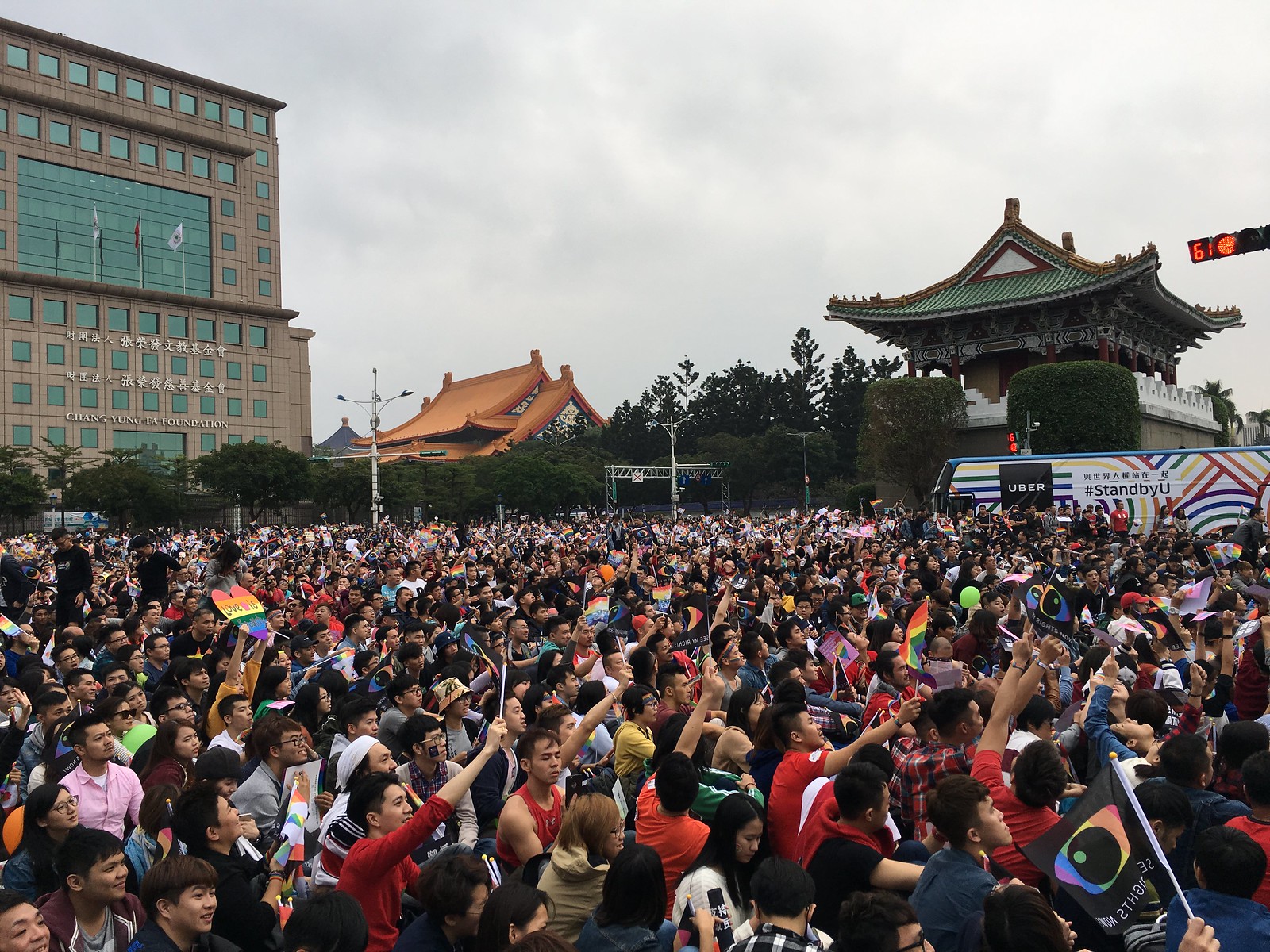
That's all necessary information, but it's all already available, so I wanted to offer perhaps a more emotional reaction to this event.
This never had to be my fight. I'm straight and married. I could have easily stayed home and said it really wasn't my issue. It doesn't affect me directly (but, through my friends, it does affect me in a way). I came out because it was the right thing to do. If there's one thing my mom, who will have passed away 2 years ago this Monday, taught me, it's that you do things because they're the right thing to do, even if they don't have to be your fight. My mom was an activist and involved person in her community, as well as a big-hearted, generous and liberal person. I felt like I was carrying a touch of her spirit with me - at least if I believed in spirits, which I don't - by attending an event to support equal rights simply because it is the right thing to do, and for no other reason.
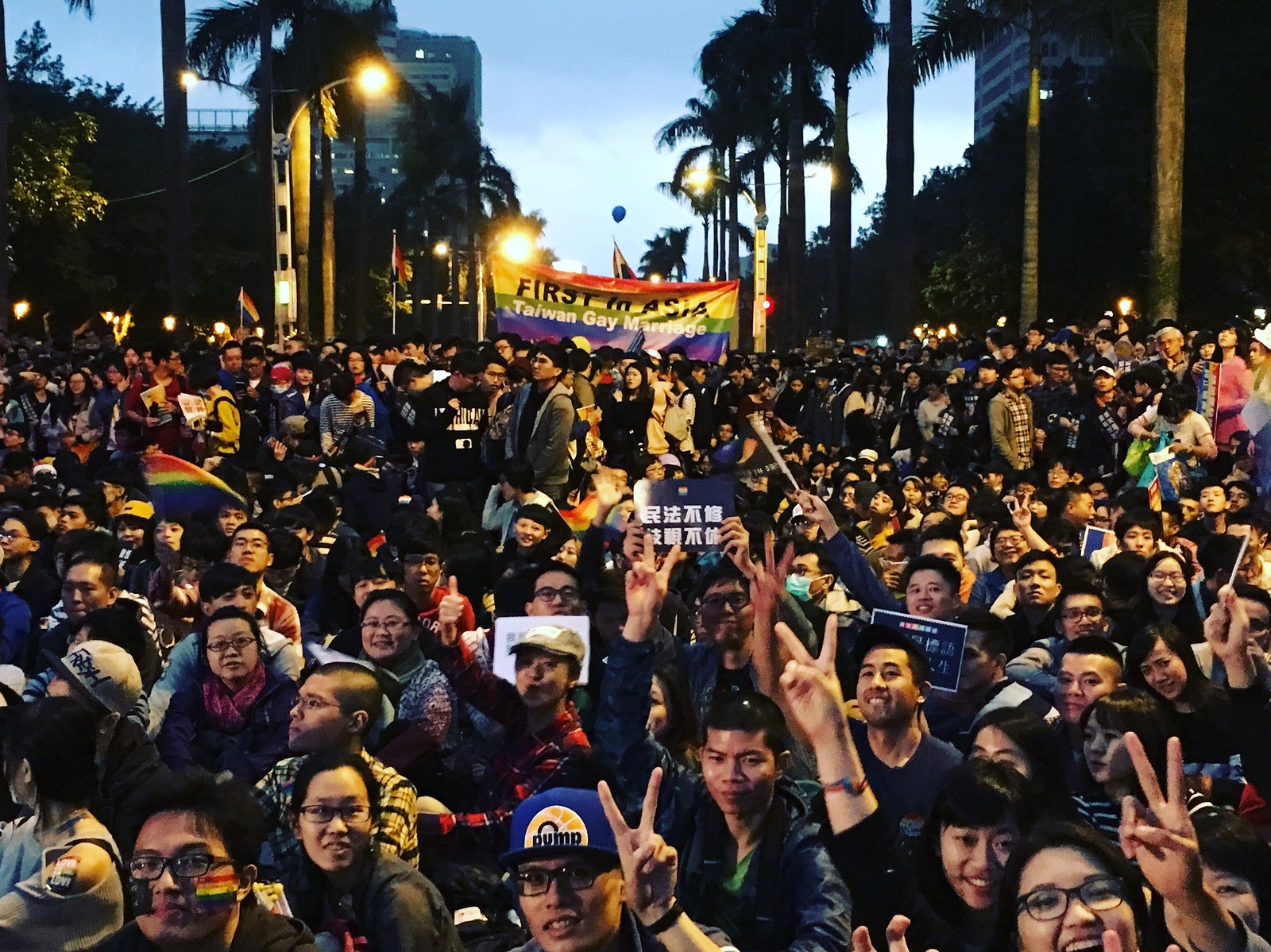
I've heard from others, too, that they had 'cry moments', or were getting misty-eyed. For a lot of people, it must have been really wonderfully overwhelming to see that their fellow citizens do, in fact, support them. Others were just blown away by the love, inclusiveness and camaraderie. I had mine too.
I have to say as I exited NTU Hospital MRT station and saw, before the event's start time of 1pm, that it was already packed, I had my first emotional reaction. This is really happening, I thought. Enough people are going to come out to support equality. We're really going to do this.
As I met my friends and we walked toward Ketagalan Boulevard, I misted up again several times - just watching how big it was, how many people felt that not only should they quietly support marriage equality, but that they needed to come out in person to show the legislature how popular the idea really is.
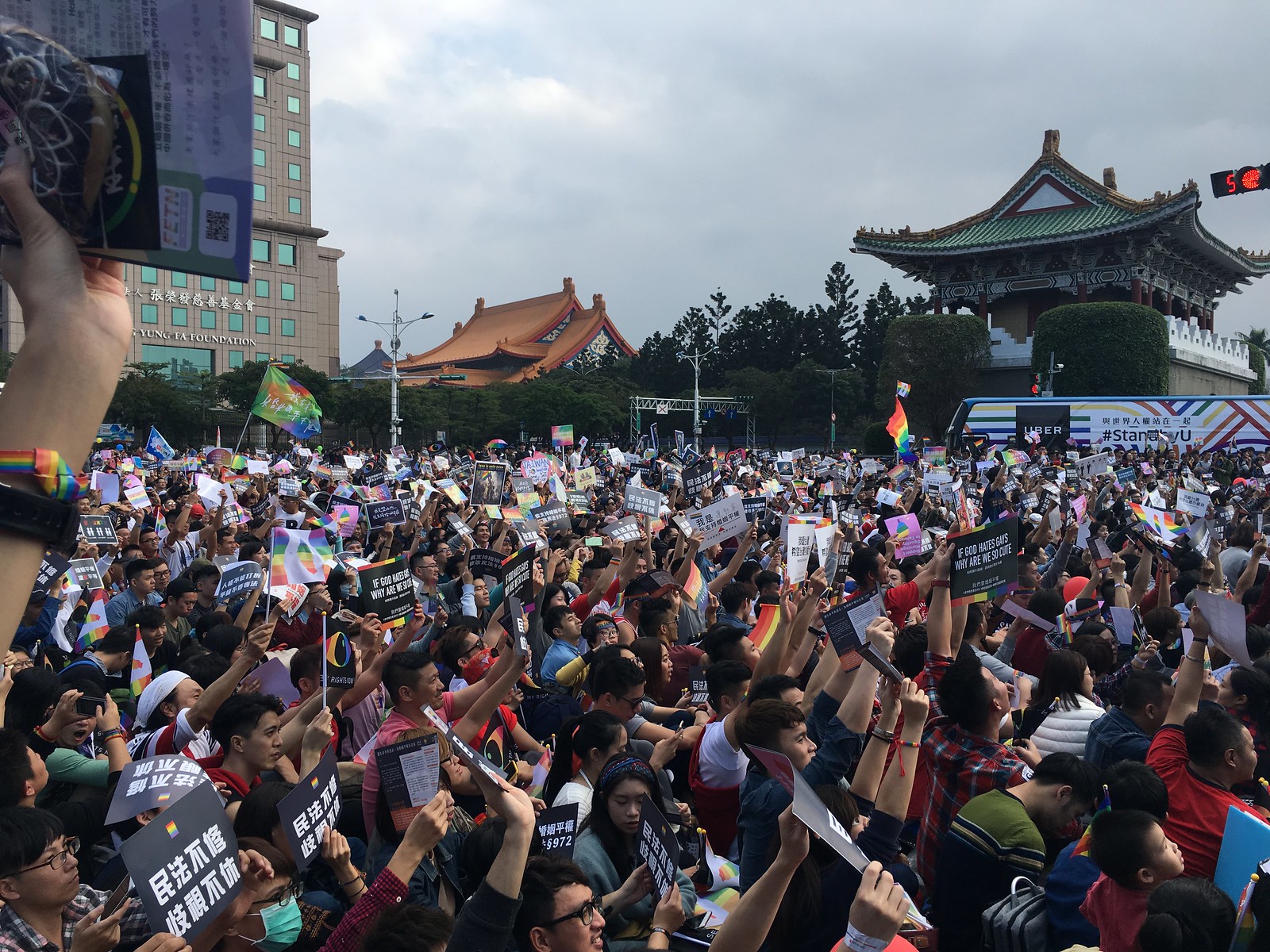
I've said it before, but it bears repeating. Often when I visit the US, I am asked about Taiwan with this assumption that it is a conservative country (if people asking can differentiate it from China or Thailand in any case). It's in Asia, which Westerners often associate with 'conservative'. It continues many traditions that have died out in China - which is not to say that Chinese culture is "preserved" in Taiwan as many like to claim, rather, these cultural elements have evolved to be uniquely Taiwanese - and religious practice has very deep and traditional roots here. There is no concept of the existence of a young Taiwanese Left (or of a society that simply is not that conservative), or that that left might have some striking similarities to the American Left. To this end, imagine my frustration when trying to explain something like the fight for marriage equality or even the Sunflowers to someone who has no concept of these movements in a non-Western context, or rather no room for them in their preconceived notions of what any given Asian country is like.
Even when I try to show, based on real evidence (poll numbers, social issues, civic activism), that there is a vibrant and popular Taiwanese Left that can now be said to outnumber the right, it's been dismissed because it doesn't fit their concept of a 'traditional Asian society'. Liberal causes can't be that popular, it's a traditional society. It can't be that progressive, it's Asia after all.
I've heard this from a few expats in Taiwan who are opposed to equality (they do exist - I've come across at least three of them) - that foreigners in Taiwan are trying to force ideas onto a culture that is different from their own, against the wishes of the Taiwanese. No attention paid, it seems, to polls which consistently show majority support for marriage equality.
I hear this from Taiwanese who are opposed to change as well. It's not our culture, please respect our cultural differences, Taiwan is more conservative.
Except, obviously, it's not. A quarter of a million Taiwanese would not have come out to support marriage equality, decisively crushing the numbers that came out to stand for reactionary ideals and anti-equality, if equality were not an integral part of Taiwanese culture. The fact that so many people were there at all speaks for itself - QED.
So coming out today and seeing hard evidence, by the numbers, that in fact equal rights is important to the people of Taiwan, liberal causes are popular, and people will show up made me a bit misty-eyed. I wasn't just trying to twist reality to fit my worldview - this is real. The enthusiasm is real. You could feel it - it wasn't angry, tight-lipped, prayerful, admonishing or dismissive (and outright threatening to outsiders, including journalists) in the way that the anti-equality rallies have been - it was warm, open, loving, and welcoming.
But what really got me was textual evidence of all of this:
I'm not going to lie - I am really happy I was not with my friends when I saw this. Something about this sign struck me like an arrow - I love the reclaiming of identity as people begin to call themselves "Formosan" to distance themselves from the "Chinese Provincial" sound that has unfortunately come to be associated with the name "Taiwan" for some. I love the historical callbacks not only to the Portuguese name, from a time before Chinese meddling (and a great deal of Chinese emigration), but to the short-lived and unrecognized Republic of Formosa and - at least in Chinese - to the Kaohsiung Incident. It was striking if you stopped to think about it, truly.
It could have been that, or perhaps the plainspoken sincerity and full-throated civic engagement in the semantics of "respect for basic human rights" and "We the people".
Or it could have just been that I'd been there all day, feeling all the feels and this sign was the spark that lit the underbrush.
At the time, I had been thinking about how the anti-equality church groups mobilized their people by getting congregations to go together: it was very much a group effort done through networks. Individuals may have chosen not to attend - and I have Taiwanese Christian friends who never would have attended an anti-equality event - but it's easier to be pulled into going when your entire congregation goes. I considered that, and how such mobilization brought them about 200,000 in total (100,000 of which were in Taipei). I compared that, then, to how so many people who came to stand up for what is right did so of their own accord. Perhaps friends influenced friends, and the LGBT and activist networks were buzzing - Facebook was on fire in the days leading up to it, but then my Facebook feed wouldn't have had any of the anti-equality buzz - but in the end, it didn't take congregations grouping together to get the most numbers. It took lots of people who, on their own, decided they needed to physically show up and put their bodies on the street to show the government what is right. We didn't have church networks, but we crushed them, decisively, simply because it was the right thing to do. That was what was going through my mind.
Either way, I walked by this particular placard and I won't lie. Little tears - the good kind - started pricking at my eyes and a few ran down my cheeks. It wasn't quite an ugly cry, but had you looked, you would have noticed.
All in a good way, but odd for someone who does not cry very often, and almost never does so in public.
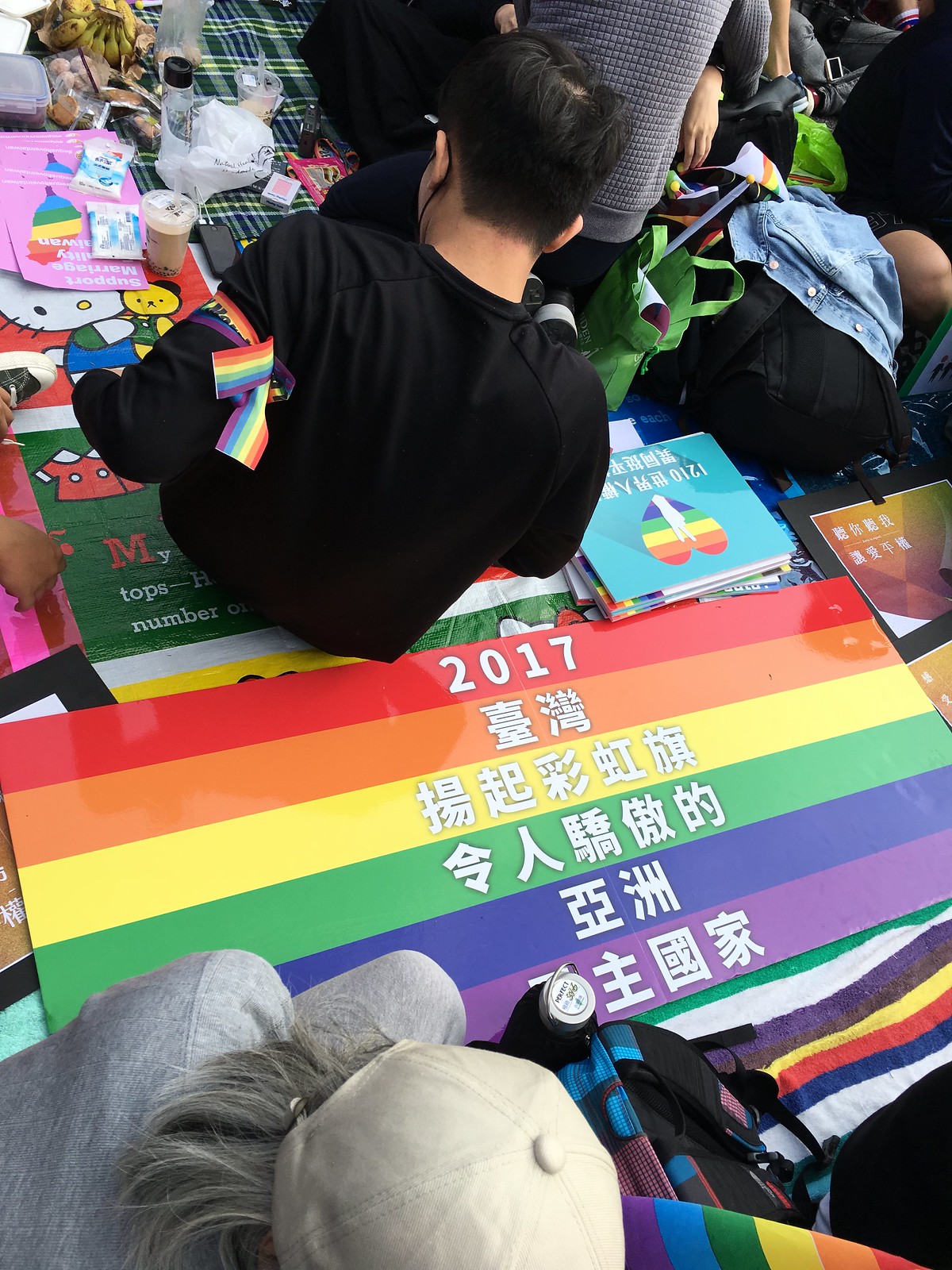
It's also worth pointing out that Pride, which attracted about 80,000 people, was very foreigner-heavy (though the majority was still Taiwanese). This was not - there were non-citizens there like me, but we were specks in a crowd. It needs to be this way, I think: Taiwan needed to show that the Taiwanese, and not foreign influence, were the driving force behind the push for equality.
That said, I do think it's important, if you're into this sort of thing, to attend rallies and protests for causes you care about as a resident. We have, by law, the right of assembly. It is one of the only rights to participate in the process that we are granted, even if we consider Taiwan to be our permanent home. So, we can and should take advantage of it. However, had this been a very foreigner-heavy event, the opposition could have easily used that to their advantage, pegging marriage equality as a 'foreign issue'.
Today, we showed the world that this is very much a Formosan issue.
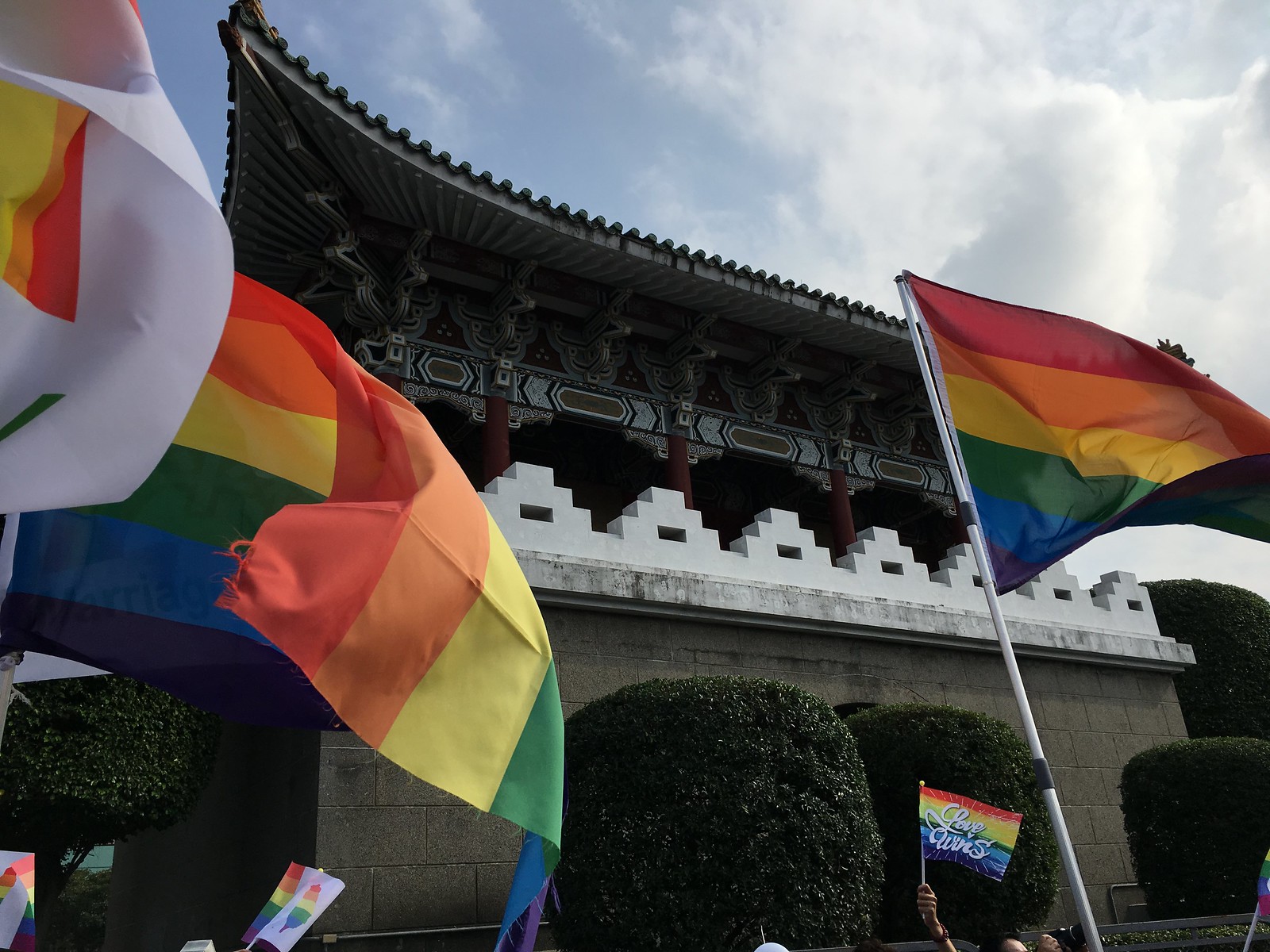
I think this video really says it all. If you want to cry too, go ahead and watch it. I appear at some point, a clip from the longer video I linked to on Thursday night. I said something like, Taiwan is a place that accepts all kinds of people. [The Taiwanese spirit] is a spirit of freedom. It's a spirit of equal rights.
And that's really it - Taiwan proved today that this is exactly the case. The Taiwanese spirit is not one of discrimination, separation, dogma, inequality or exclusion. The Taiwanese spirit is the spirit of democracy and acceptance of different backgrounds, people and lifestyles (whether they are chosen or biologically wired).
This is why I am confident that the Taiwanese will push their elected legislature - which serves the people, not the churches that represent less than 5% of the people - to do the right thing on December 26th.
Because it is simply the right thing to do.
In the end, perhaps that's what brought on the tears for so many of us.
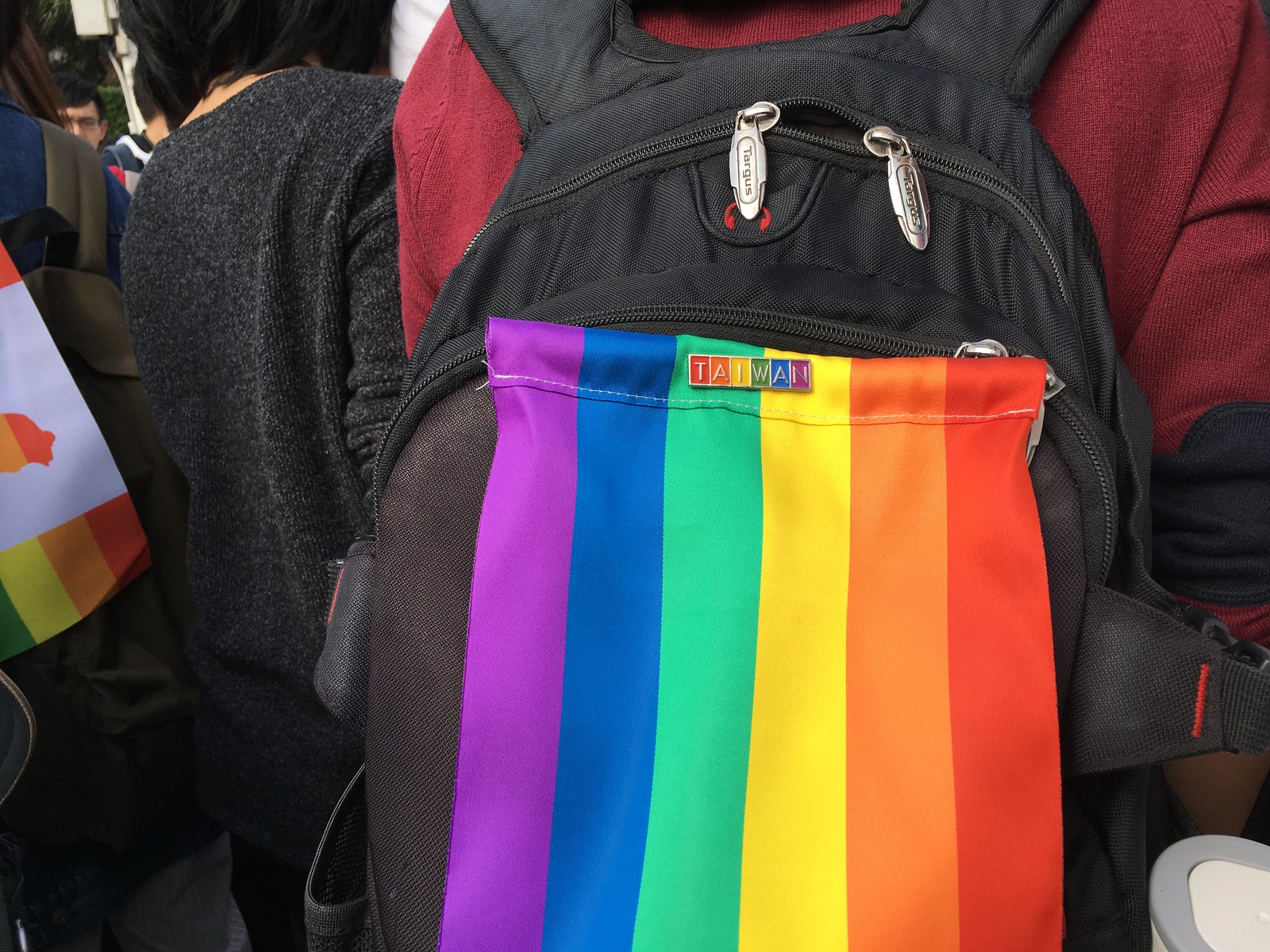
What can I say - we did good. Taiwan did good. We made it right after all of those anti-equality protests, and showed them, the legislature, President Tsai and the world what Taiwan is really about. It was inspiring.
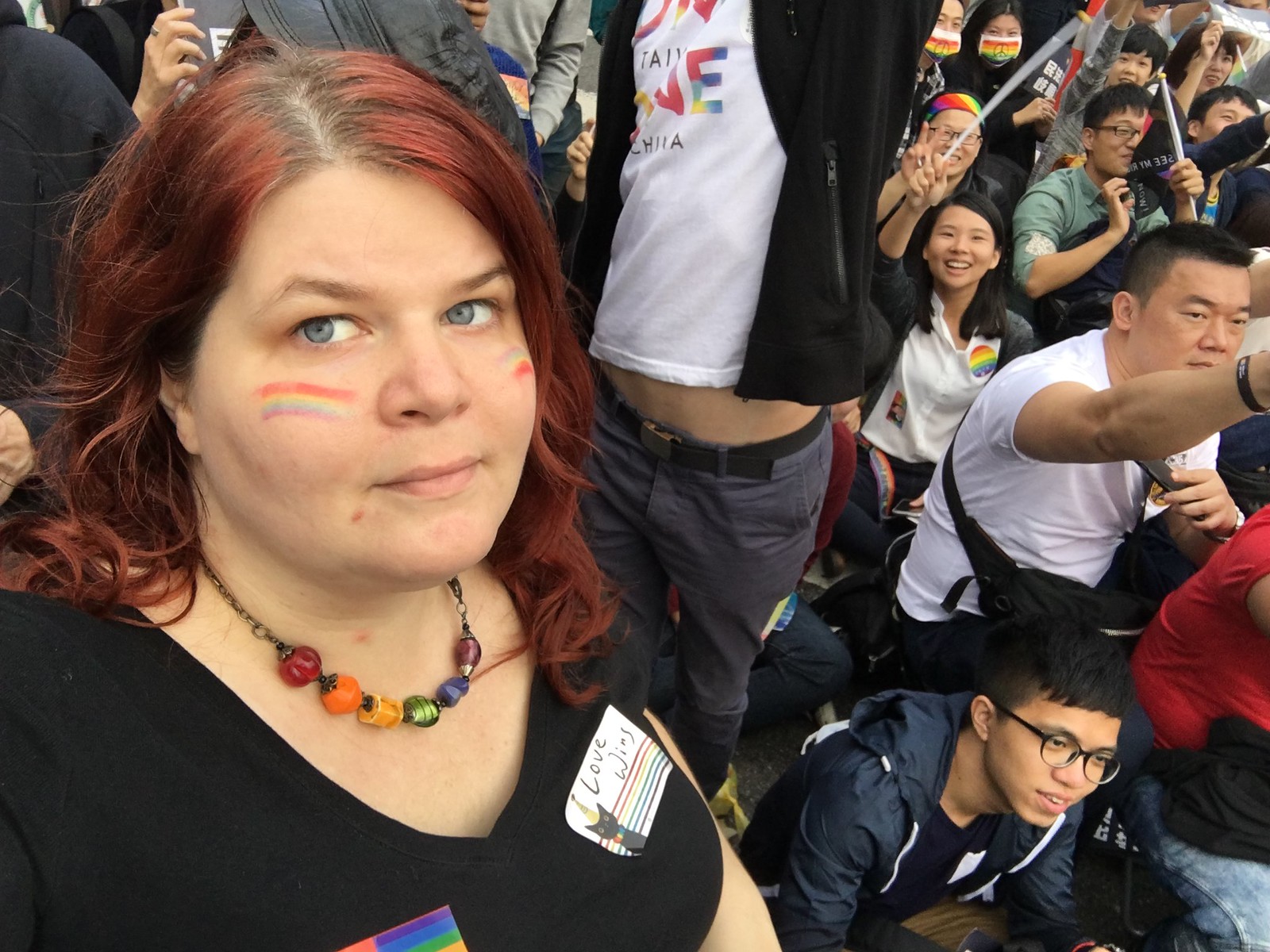 |
| I only just now realized that I totally got photobombed. Can you see it? |
Anyway, enjoy some pictures:
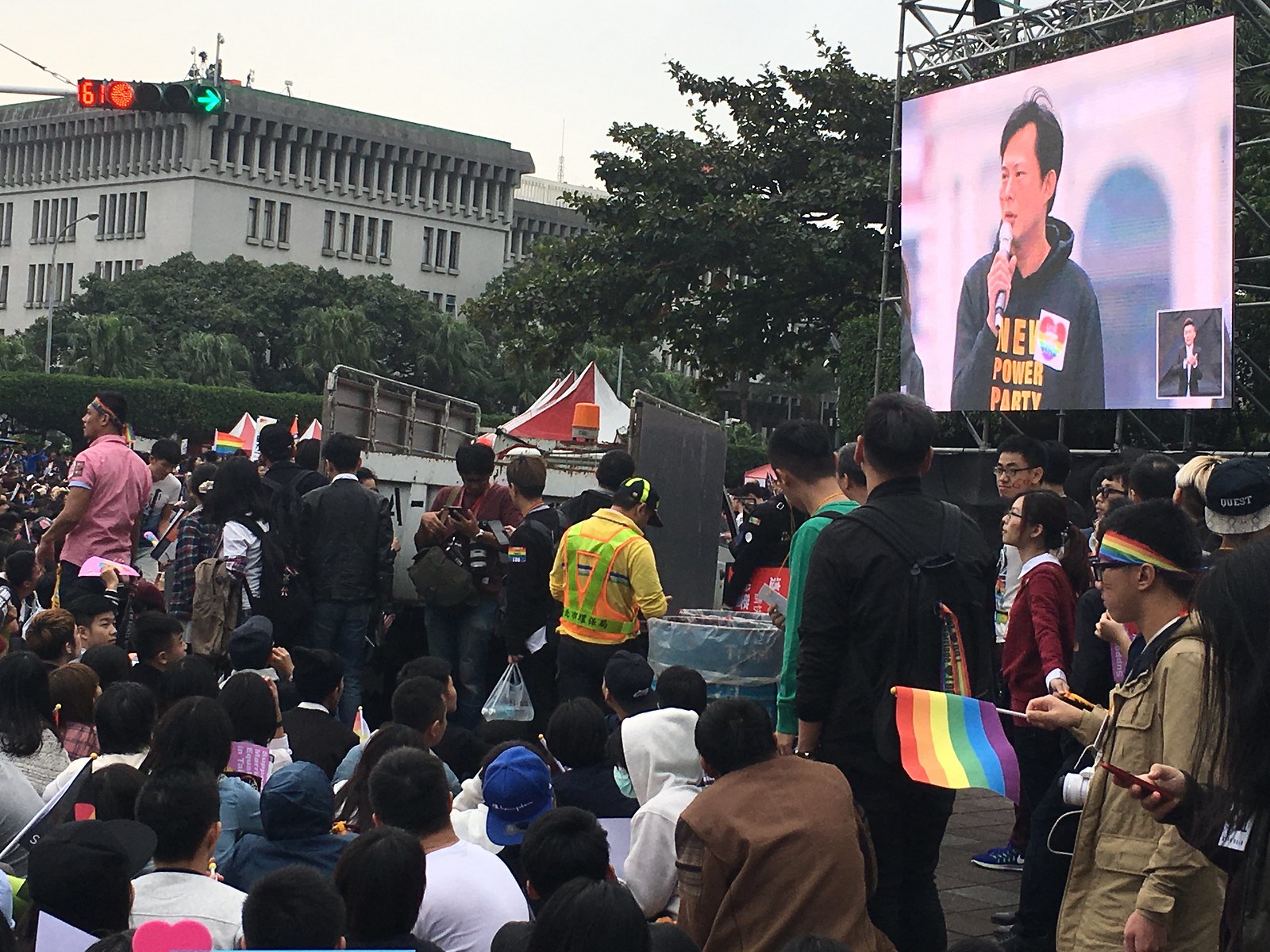 |
| NPP Legislator and former Sunflower leader Huang Guo-chang speaks |
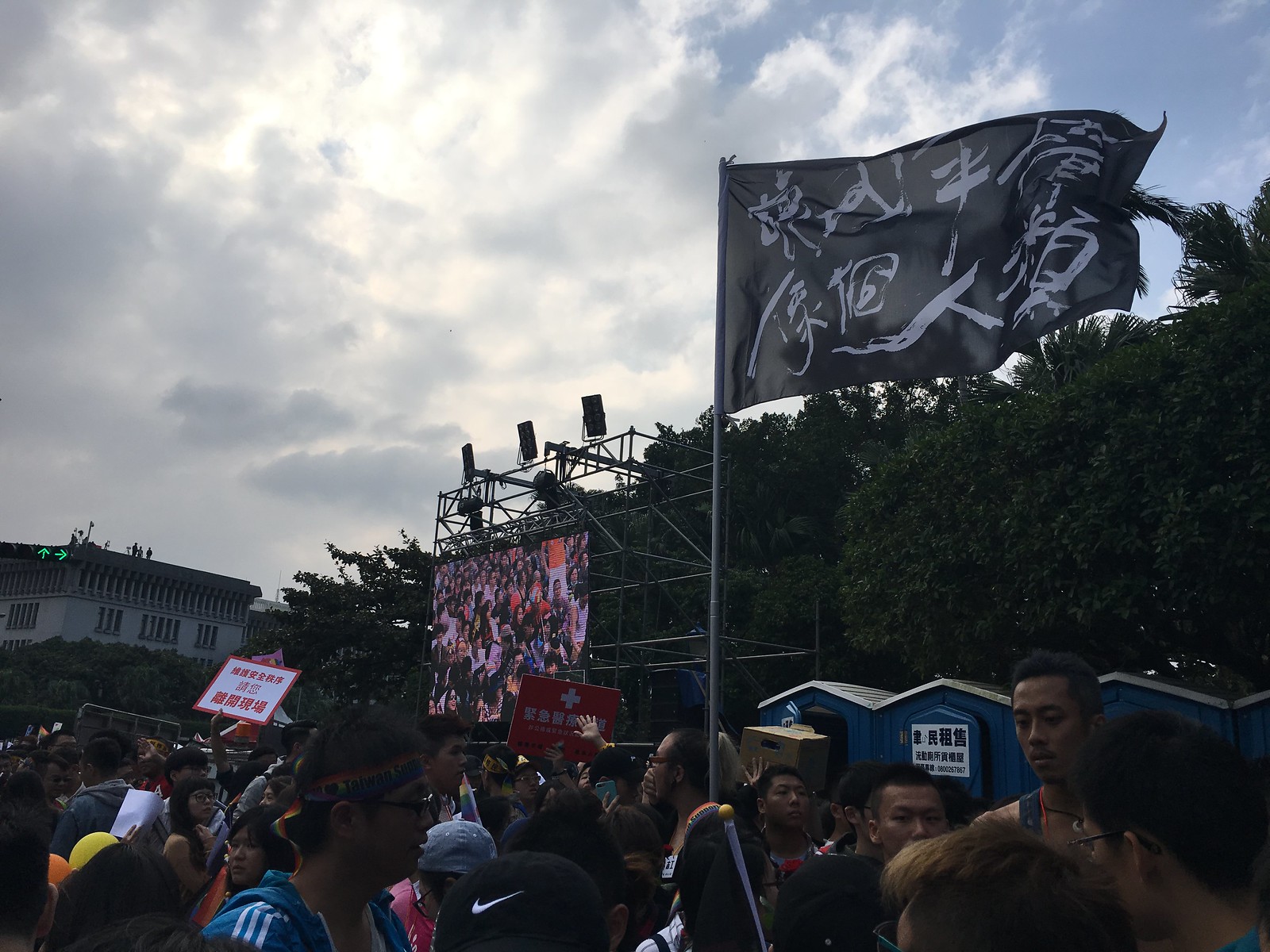
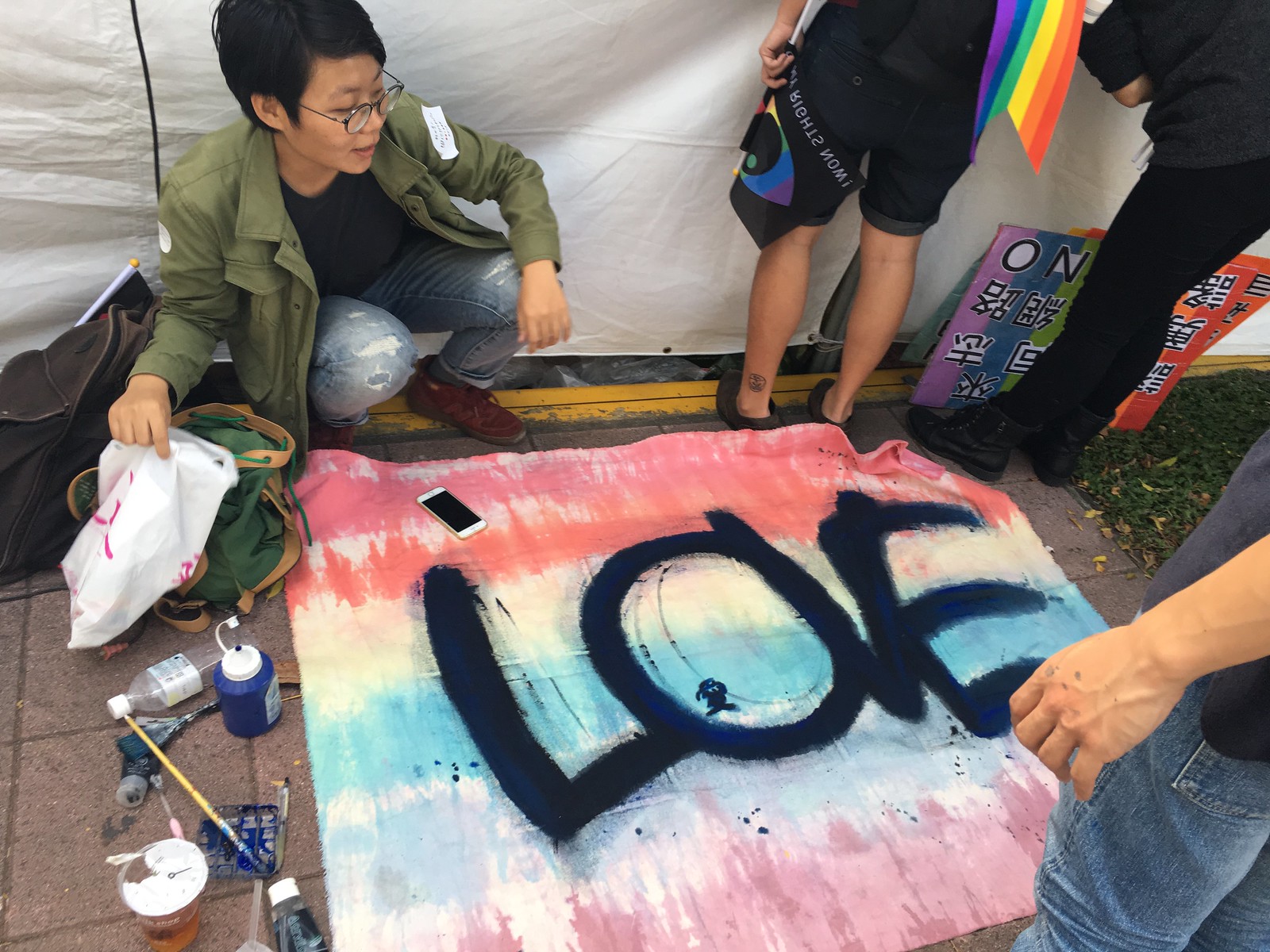
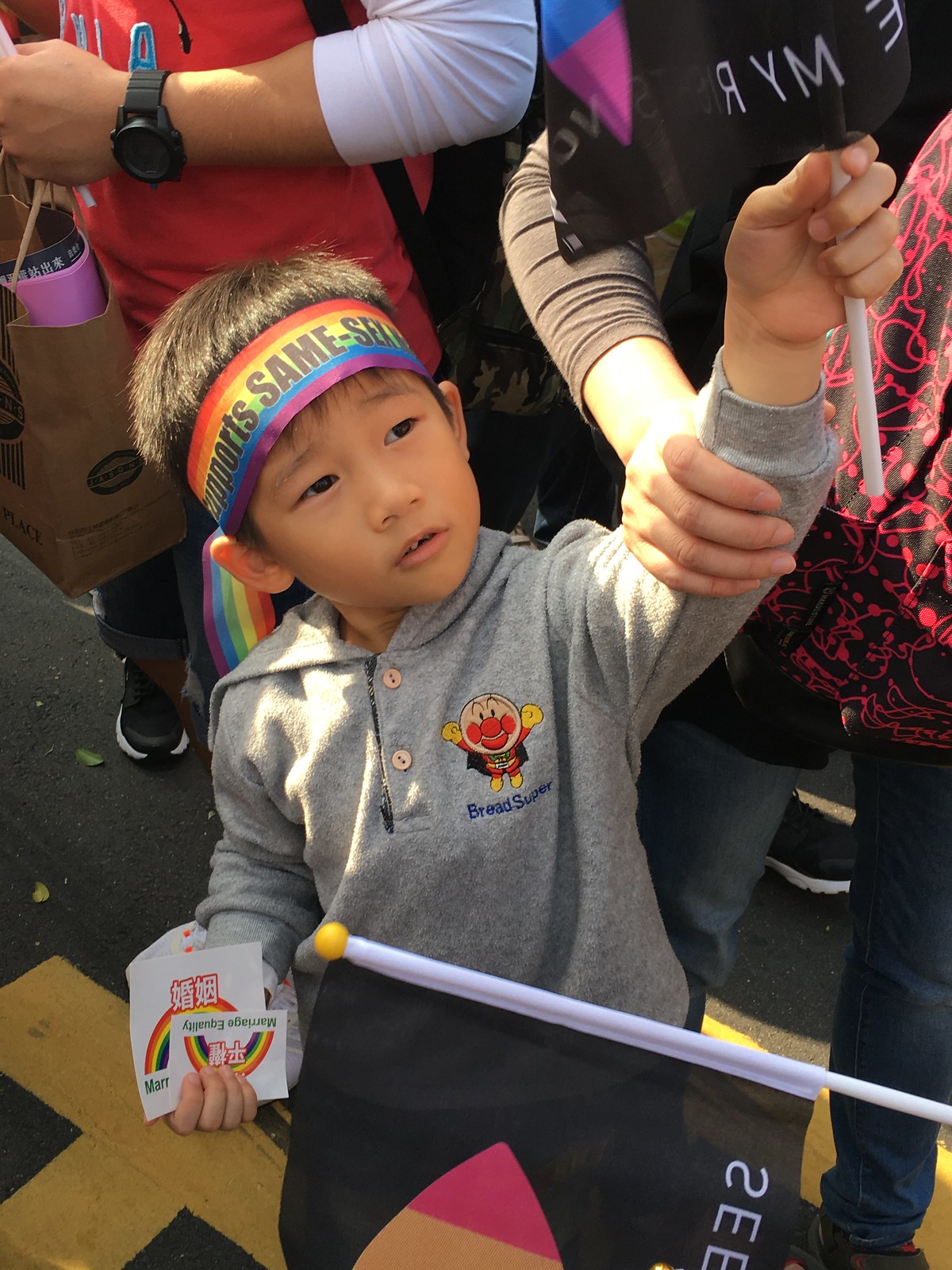
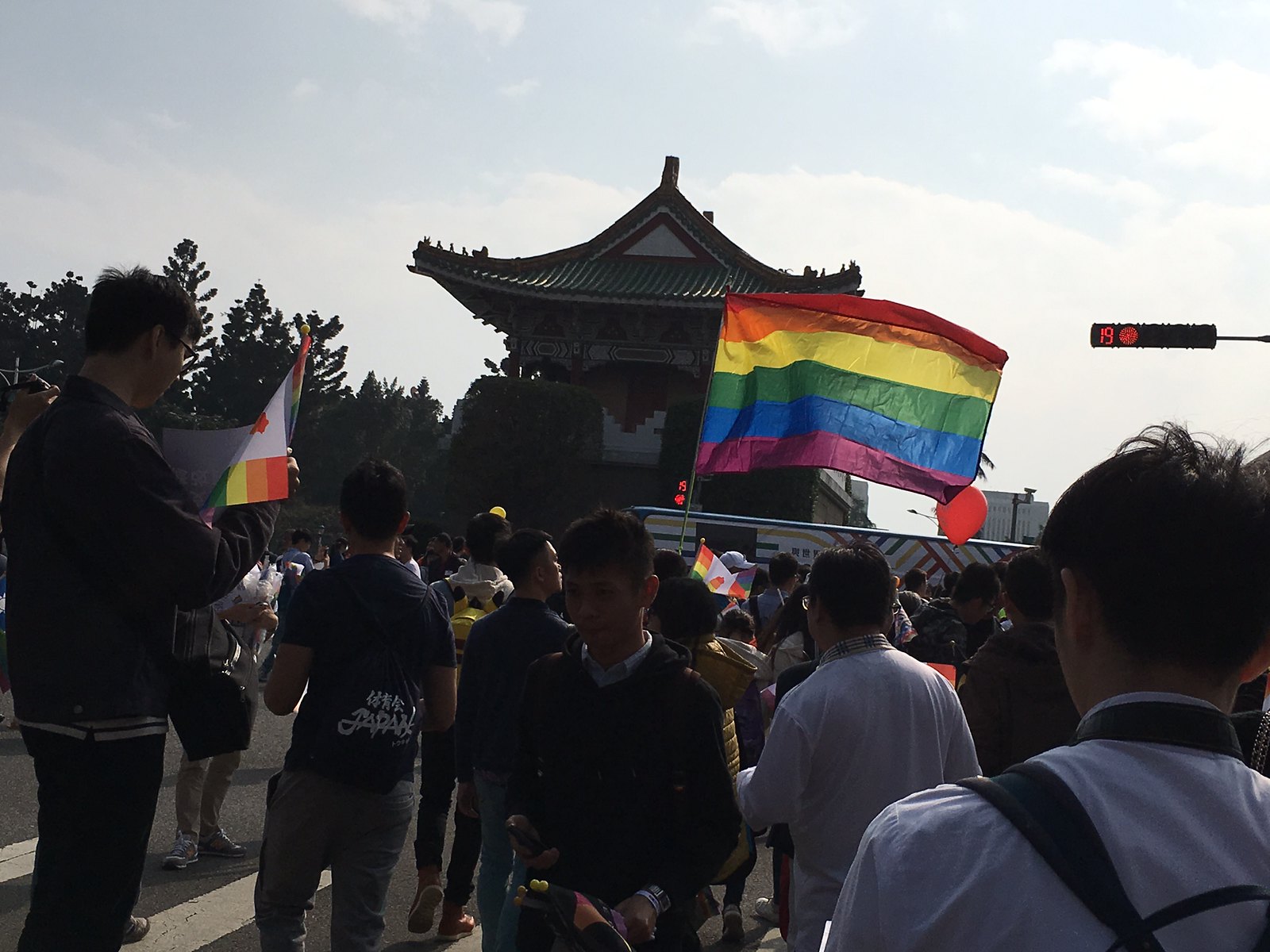
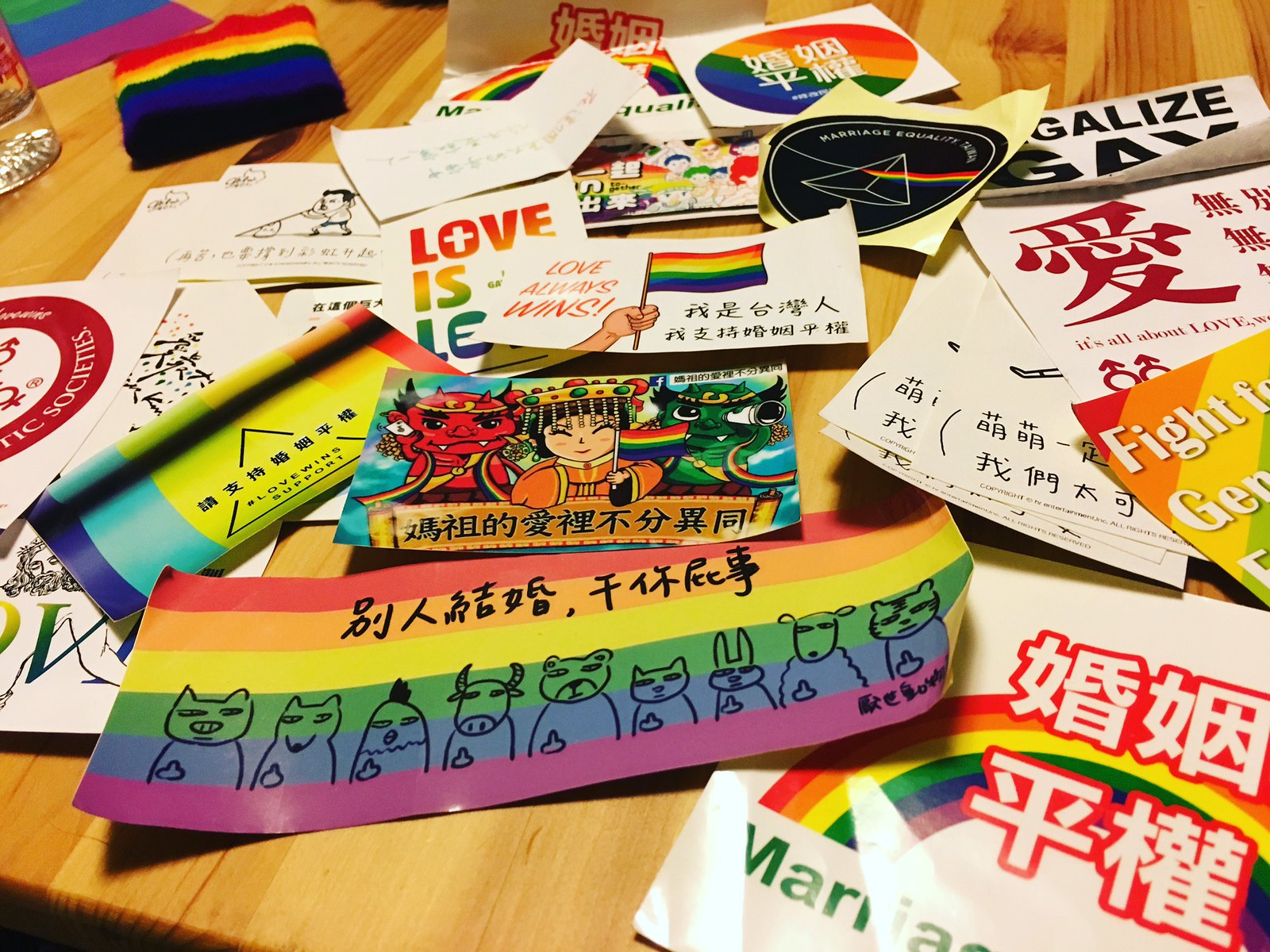 |
| Of course, the best thing about rallies and protests in Taiwan is the haul of fun stickers. The West has obviously not figured this out. |

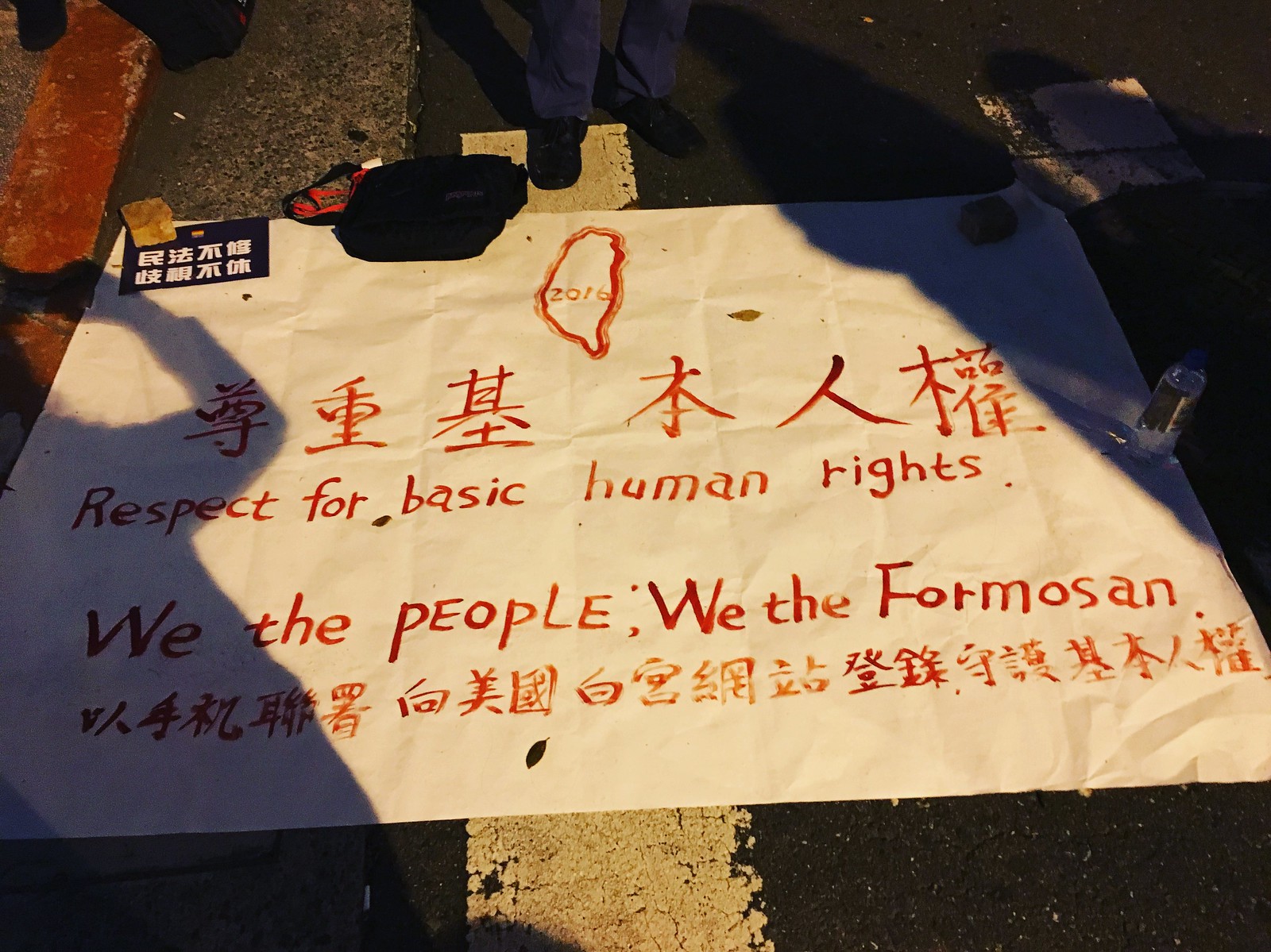
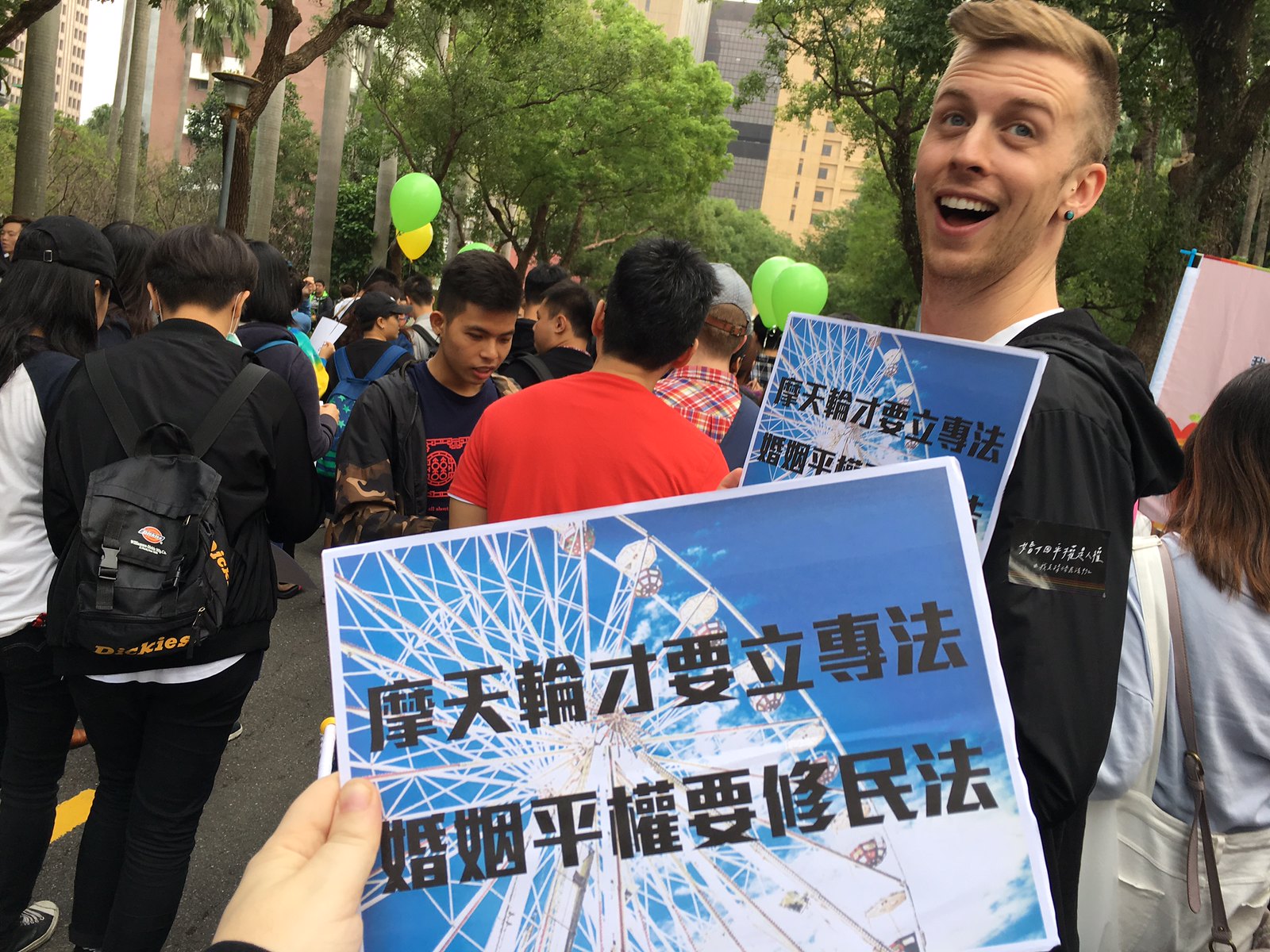
"They will also tell you that Taiwan is poised to be the first country in Asia to legalize marriage equality, and that the final reading of the bill (there are three in question but the attendees today specifically support the one that would amend the language of the Civil Code rather than be appended to it, and certainly not a third bill proposing civil partnerships) is the day after Christmas."
ReplyDeleteSince you will probably write more about this and are probably talking to a lot of people offline, I just want to clarify some of the legal/legislative issues. December 26 is a committee meeting where they will decide whether to refer the bill(s) to the entire Legislative Yuan. The plenary session that includes all 113 members will be the second reading, which won't take place until February at the earliest because that's when the next legislative session starts. Also, all three bills in the committee amend the Civil Code, though Yu Mei-nu's doesn't not change the language throughout (are you referring to hers when you said 'append to it'?). There are no civil partnership bills on the table now. Some DPP legislators may introduce one before December 26, but the KMT has said it will not.
Anyway, I will be writing a piece on the legislative process going forward after we see what happens on December 26. Keep up the good work.
This is useful, thank you!
ReplyDelete